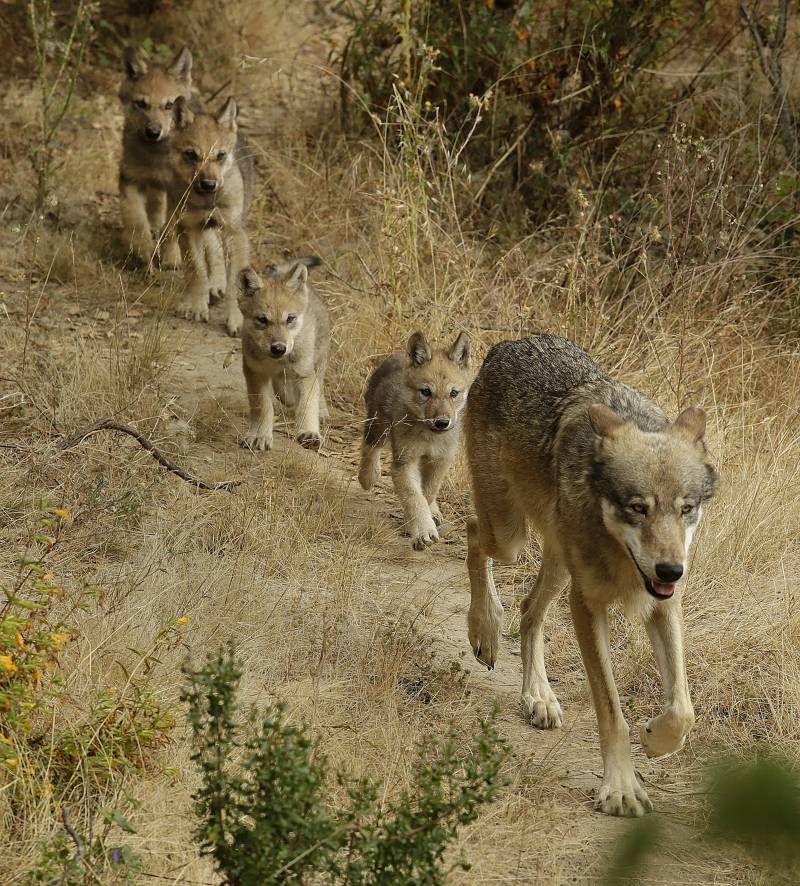A new pack of gray wolves has shown up in California’s Sierra Nevada, several hundred miles away from any other known population of the endangered species, wildlife officials announced Friday.
It’s a discovery to make researchers howl with delight, given that the native species was hunted to extinction in California in the 1920s. Only in the past decade or so have a few gray wolves wandered back into the state from out-of-state packs.
A report of a wolf seen last month in Sequoia National Forest in Tulare County led researchers to spot tracks, and collect DNA samples from fur and droppings, according to the California Department of Fish and Wildlife.
Researchers concluded that there is a new pack of at least five wolves that weren’t previously known to live in California: an adult female and her four offspring.
The pack is at least 200 miles from the next-nearest pack, which is in Lassen Park in northeastern California, wildlife officials said. A third pack is also based in Northern California.
Gray wolves are protected by both state and federal law under the Endangered Species Act. It is illegal to hurt or kill them.
DNA testing found that the adult female in the new pack is a direct descendant of a wolf known as OR7 that in 2011 crossed the state line from Oregon — the first wolf in nearly a century to make California part of its range, the Department of Fish and Wildlife said.
That wolf later returned to Oregon and is believed to have died there, officials said.
Researchers didn’t find any trace of an adult male in the new pack but genetic profiles of the offspring suggest they are descended from the Lassen Pack, wildlife officials said.

